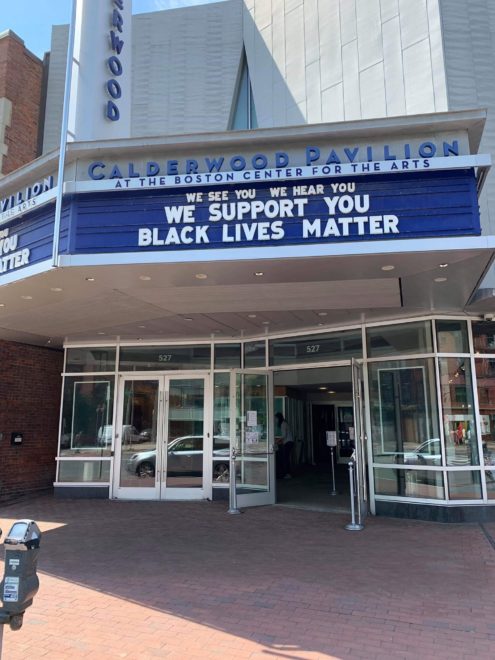News & Notes
Making racial justice even more central in our national audience study
As many of you know, we’re collaborating intensively with LaPlaca Cohen and other partners on a national research and strategy initiative called Culture and Community in a Time of Crisis: A Special Edition of Culture Track. Like everyone, we’ve been learning, listening, rethinking, and recommitting as the Black Lives Matter movement has swelled. We wanted to share the new introduction we’ve written for the project materials, which are being sent to current and potential funders and other stakeholders this week.
When we began this national research and strategy collaboration, the “crisis” in our title was the coronavirus. Recent events have demonstrated that the actual crisis is deeper, more historical and unavoidably, irreducibly cultural. We set out to help the arts and culture sector both restart and rethink: this emergency, field-wide edition of Culture Track was (and is) meant to support not just a return to vibrancy but also real progress toward equity, inclusion and wider relevance. Even before the murder of George Floyd and the international upwelling of anger and grief that has followed, we hoped that the arts and the museum field would be able to seize the opportunity for transformation — and that our findings would spark and inform those conversations. Now that goal is no longer merely embedded in this work; it is the work. If the crisis of racial injustice and the broader battle for human equity are cultural, then cultural organizations can no longer view themselves as observers or cheerleaders of change, nor as sanctuaries from it. They are by definition on the front lines of this reckoning. They are both problem and solution, history and future.
The problem is that the arts and culture field lacks standing in the struggle for equity because it’s not serving all kinds of communities equitably, and it never has. Our large first-wave survey sample confirms the longstanding disenfranchisement: Despite our efforts to include BIPOC and ALAANA arts groups in the research process, we see that the people on the lists of cultural organizations in this country are disproportionately white, compared to the U.S. population. There are exceptions, to be sure, and even before the current crises there have been promising shifts, particularly in arts philanthropy. But the systemic picture remains problematic.
So at this moment in the national project — as we analyze and interpret the data from the first wave of the national survey and begin designing the qualitative study and Wave 2 survey — we commit ourselves to amplifying Black voices and illuminating the experiences and needs of communities that have long been underrepresented or subordinated in culture-sector research; and to exploring potentially uncomfortable questions about the purposes, policies, people and places of culture that determine who feels welcome, seen and served. We recognize that we can’t do those things alone; we have reached out to new partners and colleagues with expertise in equitable research and transformation, and we are seeking additional funding to enable them to join us in this evolving, increasingly urgent effort. Please stand by for news of those new team members as they’re confirmed in the coming days.
We’d love to hear your thoughts. Please send any comments or questions to Peter Linett and Jen Benoit-Bryan.
Photo: The Boston Center for the Arts is one of many performing arts organizations that has opened it’s doors to protesters as part of the Open Your Lobby movement, providing bathrooms, water, and refuge.

